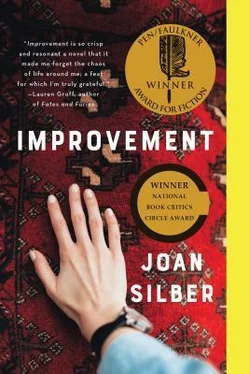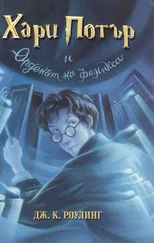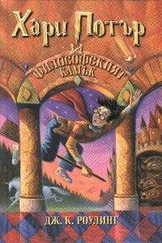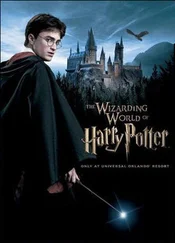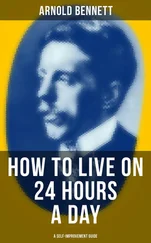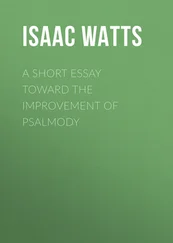And now Osman had started writing to her, sending emails out of the blue. A man whose voice she hadn’t heard in thirty-odd years. He looked older in his photos but still Osman. After all this time she must be indistinct information to him, a jumble of phrases in his past, silliness in English, radiance in bed. Not entirely remembered but never gone. It was one of the mysteries of modern life, what happened to old love.
Kiki was picturing Pat’s street, the rows of old Ottoman buildings with their windowed rooms jutting out from the upper floors. She might have had Pat’s life. Kiki thought that now whenever they saw each other. She might’ve stayed in Turkey forever, if she and Osman hadn’t moved to the farm.
It was a small, slightly ramshackle farm, and at first she’d been so proud of herself, to see where love was bringing her next. A girl from Brooklyn feeding the chickens and the geese—taken into something she knew nothing about, the elements of a very old way. The countryside around the farm looked like desert half the year, but it was rich volcanic soil, green after the snowmelt. Osman’s aunt taught her to help with the barn work and the kitchen work and the washing. Kiki didn’t mind the nonsmelly parts of the work, but some of it was awful (killing the chickens, for instance) and there was too much of it, over and over, and Osman had spells of being demoralized about the move, which made him look different to her.
She hadn’t expected to be lonely there. She thought of herself as someone who liked her own company, who’d grown out of the habit of idle social talk. But farm work was not that kind of solitude. They still scolded her about the mistakes she’d made at first. Each task required attention, and the day was one task after another.
The winters were the worst—when kitchen work started before daylight and snow fell for days and the house was never warm enough. Even the roosters, who crowed through the night, sounded full of petulance. But she might have stayed for years, winter summer winter, if not for the antiquities. (Had she really called them that? She had. Savoring the academic sound of it.) She had known what they were, better than the others, and had wanted to look at them, to hold them.
The three Germans arrived in the summer of 1977. Two men, Bruno and Dieter, and Bruno’s girlfriend, Steffi. They were passing through the region in a Volkswagen van, and they stopped on the road to look at the fruit trees. Kiki came out to tell them they could pick the peaches (which they were about to do anyway)—she was very excited to see foreigners. The farm was at the southern edge of Cappadocia where tourists never came. Kiki spoke to them in Turkish and then in English—they all had very good English.
Over her jeans the girl wore a long T-shirt she’d knotted at her hip. I could do that , Kiki thought, as if there were any reason to be stylish here. “You are a person living in the house?” Bruno said. He was the bigger, blonder one.
When Kiki invited them to supper, her aunt-in-law didn’t grumble—she was too curious—and Osman’s father and Osman went upstairs and got themselves cleaned up better than usual for the meal.
Bruno said, “This is the eggplant the best in Turkey.”
“I think you live well,” Dieter said. He was admiring the kilim under the table, a red-and-black beauty from Konya with geometric motifs.
“I used to sell these,” Osman said. “I wasn’t clever enough so I had to go live where no one is clever.” How bitter he sounded, her poor husband.
His father, who understood a little, said, “Osman had very, very good carpets,” and Kiki translated.
“We are selling things but we don’t have a shop,” Steffi said.
Osman’s father brought out the bottle of rakı , and even Aunt Ayşe had a few snorts. Ayşe was having a high old time, asking the guests if they knew any songs. To Kiki’s surprise, Dieter sang, not badly, “I Want to Hold Your Hand.” Komm, gib mir deine Hand! He had wire-rimmed glasses, like John Lennon’s, and a really nice voice. On the last verse he held his hand out to Kiki. By then it was dark outside, they’d lit the lanterns on the table, and Osman’s father refused to let the guests think of driving anywhere now. No, they didn’t have bandits anymore but sometimes on the roads they had people like them.
After the old folks went to bed, Osman, who’d learned some of his English from rock records, took it upon himself to sing the Beatles songs he knew. He went through all the verses to “Michelle” and “Rocky Raccoon.” Michelle, my belle . What a good mimic he was—he sounded like Paul, he sounded like John! Kiki laughed so hard she practically wet herself. He was usually in bed by this hour.
They agreed that Beatles songs sounded old to them now, but what did “old” mean? Osman, who posed this question, had sort of fallen asleep in his chair by the time Steffi went out to the van to bring back her illustration of what old meant. She came in with a duffel the size of a boulder, and beneath its zipper, wrapped in two blankets tied with string, was a big clay bottle—an amphora. Pale dry terra-cotta, with a fat curved middle and a long neck and two handles with designs incised in them and a pointed bottom where it had once been sunk in sand while stored on a Greek ship. It was a utilitarian object, meant to be smashed after use, but Kiki gasped when Steffi stroked the surface. It was probably two thousand years old. “Around that,” Steffi said.
Of course, it could be a fake. The Germans weren’t experts, only self-informed crooks. And amphorae weren’t all that rare anyway. It wasn’t even so valuable. But Kiki lost her breath looking at it. It was right there . The Germans were so amused by her response that they brought out another one—more battered, with a piece chipped off the spout and sea growth encrusted on one side.
Osman woke while she was getting her nerve up to touch it. She heard him say in Turkish, “What’s this?” and she told him. Everyone went quiet while Osman sat taking in the whole scene.
Bruno took the moment to reach into his jacket pocket and show off his sack of gold Byzantine coins. He put one in Kiki’s hand—the size of a nickel, thin as a dime—and she looked at an emperor’s head, drawn as roughly as a cartoon, and tried to make out the letters around it, D N IVSTINI I. Could it mean Justinian the First? It could.
“You must put this back in the car before you sleep,” Osman said. “Please not to leave them in my house.” He got up and left the room then, without any goodnights.
“Too much rakı , it’s late,” Kiki said. “Hey. Could I see a few more coins before we all go to bed?”
“She loves this. I knew she would be loving this,” Bruno said.
Dieter said, “She has the mind for it.”
What a mishmash of things they had. The Seljuk tiles were the most beautiful—turquoise glaze with black calligraphy. Thirteenth-century, if real. Did they just buy whatever anyone offered at a low price? Apparently.
“It’s hard we don’t speak Turkish,” Dieter said. “Better we have someone who speaks Turkish.”
“Maybe you can come to have a little vacation with us,” Steffi said.
“Not too long,” Dieter said, “unless you want long.” He wasn’t bad-looking either, with brown thick hair brushed back, steady eyes.
Kiki was astonished. She didn’t even know these people. Was this her next adventure, come in off the road to summon her? Bruno was saying something in German to the others. Steffi said, “In the morning we can talk.” Kiki went to get all the bedding for them from the cupboards, and she noticed that she was feeling high on the whole idea.
When she went in to Osman, he wasn’t even asleep. “You can stay up later with your friends,” he said, from the bed. “I know you want to.”
Читать дальше
